- Skip to primary navigation
- Skip to main content
- Skip to primary sidebar
- Skip to footer
Don't Miss a Post! Subscribe

- Book Summaries
- Books for Teachers
- Research Methodology Books
- Themed Book Lists
- Beyond Books

Selected Reads
A blog for bibliophiles covering everything related to books from reviews and summaries to quotes and open articles.

Best Dissertation Writing Books
By Med Kharbach, PhD | Published: June 18, 2023 | Updated: June 6, 2024
Dissertation writing books are the topic of our blog post today!
Embarking on a dissertation is a pivotal moment in any scholar’s academic journey, marking the culmination of years of study and research. It’s a daunting task, often filled with challenges that test even the most diligent of students. Recognizing the complexity and significance of this endeavor, I’ve compiled a list of essential books to aid you in your dissertation journey.
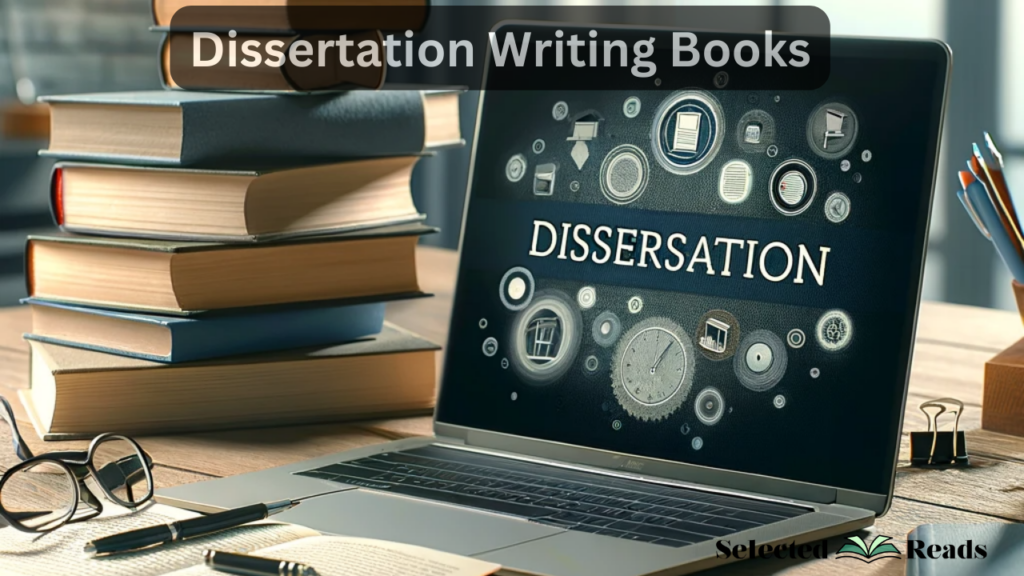
These dissertation writing books, carefully selected based on their practicality and insightful guidance, are invaluable resources for any PhD candidate. Whether you’re struggling with formulating your research question, navigating the intricacies of your methodology, or simply seeking to refine your writing skills, these books offer a wealth of knowledge and tips from seasoned academics.
In this post, we will delve into each of these books, exploring how they can ease the burden of dissertation writing and guide you towards successful completion of your academic milestone.
Related: Best Grant Writing Books
Dissertation Writing Books
Here are our top picks for dissertation writing books:
1. A Manual for Writers of Research Papers, Theses, and Dissertations , by Kate L. Turabian et al.

Turabian’s guide is a thorough exploration of the research and writing process, tackling each step with precision. The book expertly navigates Chicago’s two source citation styles and covers various facets of editorial style, including quotations and visual material.
Additionally, the manual offers practical solutions to overcoming the common fear of embarking on significant writing projects. An essential resource for anyone engaged in academic writing.
2. How to Write a Thesis , by Umberto Eco

Eco presents an invigorating approach to crafting a thesis. Divided into six integral sections, the book covers all facets of the thesis-writing process. It delves into defining and understanding the purpose of a thesis, selecting a compelling topic, conducting detailed research, crafting a work plan, the actual process of writing, and finally, refining the final draft. Eco’s lucid style and practical advice make this book a valuable guide for any student.
3. Writing Your Dissertation in Fifteen Minutes a Day , by Joan Bolker

Joan Bolker’s insightful book offers a much-needed support system for dissertation writers. A co-founder of the Harvard Writing Center, Bolker presents valuable tips and encouragement for graduate students to keep them focused and productive. She emphasizes the joy of devoting oneself to a truly engaging project and teaches strategies to overcome fear and improve writing style.
Related: Books on How to Write a Literature Review
4. How to Finish Your Dissertation in Six Months , by Scott Rank

Rank’s guide provides practical strategies to write a dissertation within a relatively short timeframe. The book shares an effective daily habit, tips on making consistent writing inevitable, managing incomplete research, leveraging advisor meetings, and seeking active help from friends. A game-changer for those struggling with time constraints in their doctoral journey.
5. The Dissertation Warrior , by Guy E. White

White’s book aims to inspire and guide doctoral students on their transformative journey. He addresses various aspects of dissertation writing and personal growth, focusing on efficient time management, aligning research and writing efforts, drafting an impactful introduction, and constructing a comprehensive literature review. A valuable guide that connects academic perseverance with personal development.
6. Authoring a PhD Thesis , by Patrick Dunleavy

Dunleavy’s comprehensive guidebook offers practical advice on formulating creative ideas, structuring them logically, drafting and revising text, and successfully completing a dissertation. It covers important aspects of the doctoral journey, such as facing examinations and getting work published. An essential resource for PhD candidates looking to effectively manage their work and intellectual challenges.
7. Getting the Best of Your Dissertation , by Dave Harris

Harris draws from multiple disciplines to provide a series of perspectives aimed at making your dissertation process more efficient and satisfying. The book delves into integrating dissertation work into your life, developing a productive writing practice, managing relationships with professors, designing research, and more. A comprehensive guide for achieving greater value from your doctoral journey.
8. Writing the Winning Thesis or Dissertation , by Randy L. Joyner, William A. Rouse, Allan A. Glatthorn

This book is a well-rounded resource for scholars seeking guidance in every phase of their research journey. The book provides insights on utilizing new technologies, effective planning, engaging writing style, defense preparation, and more. The updated fourth edition includes current case studies, which demonstrate the effectiveness of the teachings contained within.
9. How to Write a Lot: A Practical Guide to Productive Academic Writing , by Paul J. Silvia

Silvia provides strategies to dismantle common excuses and bad habits that hinder writing. His approach encompasses various academic disciplines and offers practical steps to motivate academics to be more prolific writers. The book discusses how to write, submit, and revise academic work, promoting a balanced work-life while achieving writing goals. The second edition includes an additional chapter on writing grant and fellowship proposals.
10. Writing for Social Scientists , by Howard S. Becker

Becker’s guide is a refreshing take on academic writing, emphasizing the importance of simply starting to write and then revise. It uncovers the eccentricities of academic writing, such as unnecessary wordiness and the passive voice, and provides practical solutions to overcome them. This is a must-read for writers aiming to improve their style and efficiency in academic writing.
11. The Elements of an Effective Dissertation and Thesis , by Raymond L. Calabrese

Calabrese offers a systematic guide to writing an impressive doctoral dissertation or a master’s thesis. The book breaks down the elements of the dissertation, providing detailed descriptions, definitions, and examples. The approach accommodates both quantitative and qualitative research methodologies, helping students understand what content to include and where it fits best.
12. Dissertation Without Tears , by Natalya Androsova

In this empowering guide, Androsova tackles the pressure and guilt associated with dissertation writing. The book offers tips to find joy and fulfillment in the writing process, stressing the importance of self-compassion. It debunks 58 myths about dissertation writing and replaces them with a healthy mindset that facilitates a smooth journey to the finish line.
13. Demystifying Dissertation Writing , by Peg Boyle Single

Single’s guide offers a straightforward and systematic process to dissertation writing. The book aims to enhance writing fluency and productivity, offering guidance on topic selection, planning, scheduling, and actual writing. It is especially beneficial for those who feel they aren’t receiving enough guidance and for those seeking to increase their writing productivity.
14. How to tame your PhD , by Inger Mewburn

Dr. Mewburn, founder of The Thesis Whisperer blog, shares practical strategies for efficient research and writing based on her own doctoral journey. The book consists of re-edited and expanded blog posts offering a wealth of advice on completing a PhD effectively. It is a companion guide that demystifies the PhD process and guides readers towards successful completion.
15. The Dissertation Journey , by Carol Roberts, Laura Hyatt

This guide is a comprehensive resource for developing and writing a quality dissertation. It provides updated coverage of conducting a literature review, harnessing technology for research, and using progress tracking tools. The guide is filled with sample forms, resource lists, and other user-friendly elements, making the dissertation journey smoother and more manageable.
Final thoughts
In conclusion, the PhD journey is an arduous yet transformative path that demands not only intellectual rigor but also emotional resilience. The experience, as I have personally navigated through its trials, offers profound personal growth and a deeper understanding of one’s field of study.
Facing the adversity of my mother’s illness amidst my PhD was a defining challenge, but it underscored the importance of a strong support system and the resilience needed to persevere. The selection of books I have shared in this post, each offering unique insights and practical advice on dissertation writing, represents a valuable resource for anyone embarking on or currently navigating this demanding academic endeavor.
These dissertation writing books, covering a wide range of topics from research methodology to time management and writing skills, can serve as essential tools to guide, inspire, and support PhD candidates through their journey, making the daunting task of dissertation writing more manageable and ultimately leading to successful completion and personal fulfillment.
Related Posts

Meet Med Kharbach, PhD
Dr. Med Kharbach is an influential voice in the global educational landscape, with an extensive background in educational studies and a decade-long experience as a K-12 teacher. Holding a Ph.D. from Mount Saint Vincent University in Halifax, Canada, he brings a unique perspective to the educational world by integrating his profound academic knowledge with his hands-on teaching experience. Dr. Kharbach's academic pursuits encompass curriculum studies, discourse analysis, language learning/teaching, language and identity, emerging literacies, educational technology, and research methodologies. His work has been presented at numerous national and international conferences and published in various esteemed academic journals.
Join our mailing list
Subscribe to our email list for bite-sized book summaries, curated recommendations, and exclusive content.
Subscribe for exclusive resources .
You have successfully joined our subscriber list.
- Skip to primary navigation
- Skip to main content
- Skip to primary sidebar
- Skip to footer
Don't Miss a Post! Subscribe
- Guest Posts

- Educational AI
- Edtech Tools
- Edtech Apps
- Teacher Resources
- Special Education
- Edtech for Kids
- Buying Guides for Teachers

Educators Technology
Innovative EdTech for teachers, educators, parents, and students
Thesis Books for Research Students
By Med Kharbach, PhD | Last Update: May 14, 2024

Embarking on a thesis or dissertation journey is one of the most challenging yet rewarding aspects of academic life. Whether you’re a novice researcher just starting out or a seasoned student ready to tackle your final project, having the right resources can make a world of difference. The books listed here are invaluable guides that cover every aspect of the process, from proposal preparation to writing and defending your dissertation. They offer practical advice, proven strategies, and reassuring insights to help you navigate the complexities of academic writing and research.
Related resources: academic writing guides and research methodology textbooks .
Thesis Books
Let’s explore these essential reads that will support you in crafting a thorough, well-argued, and polished dissertation.
1- The Craft of Research, Fourth Edition (Chicago Guides to Writing, Editing, and Publishing) 4th Edition , by Wayne C. Booth et al.
This fundamental guide, conceived by experienced researchers and educators, offers a comprehensive roadmap for conducting research. It elucidates the process of finding and evaluating sources, anticipating and responding to reader reservations, and crafting an argument that withstands critical scrutiny, making it an essential resource for anyone aiming to produce robust, well-supported research.
2- ”They Say / I Say”: The Moves That Matter in Academic Writing, with 2016 MLA Update (Third Edition) by Gerald Graff (Author), Cathy Birkenstein (Author)’
This influential book demystifies the key rhetorical moves essential for academic writing. It teaches students how to frame their arguments within the context of existing discourse and offers practical templates to facilitate these moves. With chapters addressing writing in the sciences, social sciences, and literature, this edition is a versatile tool for students across various disciplines.
3- Research Design: Qualitative, Quantitative, and Mixed Methods Approaches, 4th Edition , by John W. Creswell (Author)
The fourth edition of this pioneering work provides a detailed comparison of qualitative, quantitative, and mixed methods research designs. Creswell delves into philosophical assumptions, literature review, theory application, and the ethical and writing considerations crucial to scholarly inquiry. This book remains a cornerstone for researchers seeking a thorough understanding of diverse methodological approaches.
4- Publication Manual of the American Psychological Association 6th Edition , by American Psychological Association (Author)
This authoritative manual is the go-to style guide for writers in the behavioral and social sciences, though its utility extends to any non-fiction prose writer. It offers clear guidelines on writing, citation, and formatting, helping authors present their work with clarity and professionalism.
5- How To Prepare A Dissertation Proposal: Suggestions for Students in Education & the Social and Behavioral Sciences by David Krathwohl (Author)
This practical guide addresses critical questions like “What are the core elements of a strong proposal?” and “How can computer use facilitate my literature review?” Providing a unique “assembly manual” approach, it helps students craft a comprehensive and convincing dissertation proposal, highlighting how to accentuate the strengths of study design and navigate the proposal review and approval process.
6- The Dissertation Journey: A Practical and Comprehensive Guide to Planning, Writing, and Defending Your Dissertation 2nd Edition by Carol M. Roberts (Author)
This comprehensive guide demystifies the dissertation process with the aid of graphics, checklists, and sample forms. It prepares students for each step, from selecting the committee to acclimating to academic writing, preparing for the oral defense, and publishing their research, ensuring a smoother and more manageable journey through dissertation challenges.
7- Writing Your Dissertation in Fifteen Minutes a Day: A Guide to Starting, Revising, and Finishing Your Doctoral Thesis 1st Edition by Joan Bolker (Author)
Joan Bolker, who has helped over a hundred students complete their dissertations, offers practical and reassuring advice for dissertation writers. This guide emphasizes that struggles are not unique and provides invaluable suggestions for starting, revising, and finishing a doctoral thesis, making the daunting task of dissertation writing more approachable and manageable.
8- How to Write a Lot: A Practical Guide to Productive Academic Writing (Lifetools: Books for the General Public) 1st Edition by Paul J. Silvia (Author)
Paul Silvia’s practical and encouraging book debunks the myth that productive writing requires innate talent. Instead, he offers specific tactics and actions to overcome motivational roadblocks and increase writing output. Using examples from his field of psychology, Silvia provides detailed advice on writing, submitting, revising, and resubmitting articles, enhancing writing quality, and maintaining productivity without sacrificing personal time.
9- Dissertations And Theses from Start to Finish: Psychology And Related Fields 2nd Edition , by John D. Cone (Author), Sharon L. Foster (Author)
This essential guide supports students through the practical, logistical, and emotional stages of writing dissertations and theses. It offers clear guidance on defining topics, scheduling project time, and conducting, analyzing, writing, presenting, and publishing research, making it an invaluable resource for students in psychology and related fields.
Final thoughts
Completing a dissertation or thesis is no small feat, but with the right guidance, it can be a manageable and even enjoyable process. The books we’ve highlighted provide comprehensive support, addressing everything from proposal preparation to the final defense and publication. These resources offer practical tools, insightful advice, and motivational support to help you overcome the hurdles and achieve your academic goals. Whether you need help with structuring your research, writing productively, or navigating the emotional landscape of dissertation writing, these guides will equip you with the knowledge and confidence to succeed.

Join our mailing list
Never miss an EdTech beat! Subscribe now for exclusive insights and resources .
Meet Med Kharbach, PhD
Dr. Med Kharbach is an influential voice in the global educational technology landscape, with an extensive background in educational studies and a decade-long experience as a K-12 teacher. Holding a Ph.D. from Mount Saint Vincent University in Halifax, Canada, he brings a unique perspective to the educational world by integrating his profound academic knowledge with his hands-on teaching experience. Dr. Kharbach's academic pursuits encompass curriculum studies, discourse analysis, language learning/teaching, language and identity, emerging literacies, educational technology, and research methodologies. His work has been presented at numerous national and international conferences and published in various esteemed academic journals.

Join our email list for exclusive EdTech content.
- Technical Support
- Find My Rep
You are here
Writing the Winning Thesis or Dissertation A Step-by-Step Guide
- Randy L. Joyner - Appalachian State University, North Carolina, East Carolina University, USA, Virginia Tech, USA
- William A. Rouse
- Allan A. Glatthorn
- Description
The classic step-by-step guide to thesis and dissertation success, fully updated for 2018. From selecting your topic to defending your finished work, a masters thesis or doctoral dissertation is a major undertaking. Since 1998, this book has been the go-to resource for scholars seeking guidance and best practices at every phase of the process. This revised and updated fourth edition is the most comprehensive guide yet to researching, writing, and publishing a successful thesis or dissertation. It includes:
- Insights on leveraging new technologies to maximize your efficiency.
- Current case studies demonstrating the book’s teachings in action.
- Tested principles of effective planning, an engaging writing style, defense preparation, and more.
Written in an easy, digestible style perfect for a thesis or dissertation-writer’s busy schedule, this latest edition of a contemporary classic belongs on every advanced degree candidate’s shelf.
Dr. Joyner and Dr. Rouse have again put together an in-depth, comprehensive, and practical guide that is a valuable resource for graduate students. This edition includes important information related to current and emerging trends in technology and valuable case studies focusing on the most common problems encountered in writing at the master’s and doctoral levels. James R. Machell, Dean College of Education and Professional Studies, University of Central Oklahoma Writing the Winning Dissertation is an essential guidebook for students writing a master’s thesis or doctoral dissertation. I used the first edition to write an award-winning dissertation and now use the updated edition with the doctoral students I advise. I highly recommend it to both students and advisors. Susan Colby, Director of Faculty Professional Development, Appalachian State University; Boone, NC Appalachian State University
| ISBN: 9781544317205 | Paperback | Suggested Retail Price: $45.95 | Bookstore Price: $36.76 |
| ISBN: 9781544317199 | Electronic Version | Suggested Retail Price: $41.00 | Bookstore Price: $32.80 |
See what’s new to this edition by selecting the Features tab on this page. Should you need additional information or have questions regarding the HEOA information provided for this title, including what is new to this edition, please email [email protected] . Please include your name, contact information, and the name of the title for which you would like more information. For information on the HEOA, please go to http://ed.gov/policy/highered/leg/hea08/index.html .
For assistance with your order: Please email us at [email protected] or connect with your SAGE representative.
SAGE 2455 Teller Road Thousand Oaks, CA 91320 www.sagepub.com
Dr. Joyner and Dr. Rouse have again put together an in-depth, comprehensive, and practical guide that is a valuable resource for graduate students. In addition to the excellent information provided in earlier editions, this edition also includes important information related to current and emerging trends in technology and valuable case studies focusing on the most common problems encountered in writing at the master’s and doctoral levels. If you are embarking on a thesis or dissertation, use this most valuable of resources to avoid the pitfalls inherent in the process.
Writing the Winning Dissertation is an essential guidebook for students writing a master’s thesis or doctoral dissertation. I used the first edition to write an award-winning dissertation and now use the updated edition with the doctoral students I advise. Each chapter of this cogent and comprehensive book addresses crucial elements that lead to success. I highly recommend it to both students and advisors.
In this book, Joyner, Rouse, and Glatthorn thoroughly introduce and explore writing a thesis or a dissertation – walking the reader through every path and pitfall imaginable. It is a must-read for anyone starting one of these writing processes and a good read for the faculty working with them.
This book provides a comprehensive guide to the entire process, from selecting a research topic to the final defence. Its practical advice, clear examples, and step-by-step approach make complex concepts accessible and manageable. Adding this book to the reading list will equip postgraduate students with essential tools and strategies to successfully navigate the dissertation process, enabling them to produce high-quality, impactful research.
This book will be recommended as a resource for all thesis and dissertation candidates.
The perfect book for a Thesis Proposal course!
Clear explanations, well set out, easy to follow advice.
Greta for undergrads and post grads alike. Motivational and clear examples plus useful advice to follow
Excellent book and insightful for my students.
This book offers a thorough and detailed look at how to develop a research project. It is suited to those studying in US universities, as terminology and some of the focal points relate to this.
Preview this book
Select a purchasing option.

Mastering Your Dissertation
The Answers to Your Questions on Bachelor´s, Master´s and Project Theses
- © 2023
- Sue Reeves ORCID: https://orcid.org/0000-0002-3017-0559 0 ,
- Bartek Buczkowski ORCID: https://orcid.org/0000-0002-4146-3664 1
University of Roehampton, London, UK
You can also search for this author in PubMed Google Scholar
Manchester Metropolitan University, Manchester, UK
- Essential reading for any student embarking on their first research project
- Clearly explains the different types of dissertations on offer
- Written by University Lecturers with more than 20 years of experience
9650 Accesses
16 Altmetric
This is a preview of subscription content, log in via an institution to check access.
Access this book
Subscribe and save.
- Get 10 units per month
- Download Article/Chapter or eBook
- 1 Unit = 1 Article or 1 Chapter
- Cancel anytime
- Available as EPUB and PDF
- Read on any device
- Instant download
- Own it forever
- Compact, lightweight edition
- Dispatched in 3 to 5 business days
- Free shipping worldwide - see info
Tax calculation will be finalised at checkout
Other ways to access
Licence this eBook for your library
Institutional subscriptions
About this book
- Study skills
- Undergraduate Dissertation
- Writing skill
- Research project
- Dissertation
- Student question
Table of contents (15 chapters)
Front matter, what will this book cover.
- Sue Reeves, Bartek Buczkowski
How Can I Get Organised?
How do i choose a project type and title, what is the best way to work with my supervisor, do i need to complete an ethics form, how do i write an introduction and literature review, how do i write the methods chapter, how do i present the results, how do i write the discussion chapter, how do i write the conclusion, how do i reference, does my dissertation need an abstract, what else should i include in my dissertation, how do i prepare for a successful defence, other frequently asked questions, back matter, authors and affiliations.
Bartek Buczkowski
About the authors
Dr Sue Reeves is the Head of Teaching and Learning in the School of Life and Health Sciences at the University of Roehampton. She has taught nutrition for over 20 years, has won several teaching excellence awards, has been an external examiner, and is a Senior Fellow of Advance HE. She is a Registered Nutritionist and a Fellow of the Association for Nutrition. Her published research includes many aspects of nutrition including the role of diet in obesity, coeliac disease, and healthy and sustainable restaurants. Sue is part of the international Toybox Malaysia team that has been awarded two Medical Research Council grants for projects to improve healthy behaviours among pre-schoolers in Malaysia and is an advisor on degree programmes in Malaysia and Singapore. Along with Dr Yvonne Jeanes, she is the co-author of the Study Skills Handbook for Nutritionists and Dietitians.
Dr Bartek Buczkowski is the Department Education Lead in the Department of Health Professions at Manchester Metropolitan University and Senior Lecturer in Nutrition. He is a Higher Education lecturer with 13 years’ experience, Senior Fellow of Advance HE (SFHEA), nominated for numerous teaching awards and winner of Teacher of the Year in 2019 Manchester Met Student Union Teaching Awards. Bartek has a long track of supervision of students at BSc, MSc and PhD levels. Bartek is a Registered Nutritionist and is active in the Association for Nutrition (AfN). He was elected to AfN Council in December 2022, and appointed Chair of the Accreditation Committee in January 2023.
Bibliographic Information
Book Title : Mastering Your Dissertation
Book Subtitle : The Answers to Your Questions on Bachelor´s, Master´s and Project Theses
Authors : Sue Reeves, Bartek Buczkowski
DOI : https://doi.org/10.1007/978-3-031-41911-9
Publisher : Springer Cham
eBook Packages : Biomedical and Life Sciences , Biomedical and Life Sciences (R0)
Copyright Information : The Editor(s) (if applicable) and The Author(s), under exclusive license to Springer Nature Switzerland AG 2023
Softcover ISBN : 978-3-031-41910-2 Published: 19 October 2023
eBook ISBN : 978-3-031-41911-9 Published: 18 October 2023
Edition Number : 1
Number of Pages : XVII, 165
Number of Illustrations : 13 b/w illustrations, 2 illustrations in colour
Topics : Life Sciences, general , Medicine/Public Health, general , Thesis and Dissertation , Writing Skills , Research Skills
- Publish with us
Policies and ethics
- Find a journal
- Track your research
Resources for Dissertation Writing
- Getting Started
- Proposals and Prospectuses
- Literature Reviews
- Humanities and the Arts Resources
- Social/Behavioural Sciences Resources
- Sciences Resources
- Business Resources
- Formatting and Submitting Your Dissertation
- Tips: Making Progress, Staying Well, and More!
UBC Library Research Commons
About This Section of the Guide
In this section, UBC Research Commons staff have compiled a number of books available through UBC Library that might help you in your dissertation writing. In addition to the general books on this page, there are also pages with books related to writing in the Humanities and the Arts , the Social and Behavioural Sciences , the Sciences , and Business . For disciplines that fall under more than one of these broad areas, such as education or social work, we've included the books in all the broad disciplines that seem to be most appropriate.
If there's a book you've used that doesn't appear on any of these pages, please e-mail us and let us know!
General Dissertation Writing Books and E-Books
Older Books and E-Books
These books may be somewhat dated now, but can still provide useful tips for writing theses and dissertations.
- << Previous: Literature Reviews
- Next: Humanities and the Arts Resources >>
- Last Updated: Jun 23, 2021 9:58 AM
- URL: https://guides.library.ubc.ca/dissertation
Have a language expert improve your writing
Run a free plagiarism check in 10 minutes, automatically generate references for free.
- Knowledge Base
- Dissertation
How to Write a Dissertation | A Guide to Structure & Content
A dissertation or thesis is a long piece of academic writing based on original research, submitted as part of an undergraduate or postgraduate degree.
The structure of a dissertation depends on your field, but it is usually divided into at least four or five chapters (including an introduction and conclusion chapter).
The most common dissertation structure in the sciences and social sciences includes:
- An introduction to your topic
- A literature review that surveys relevant sources
- An explanation of your methodology
- An overview of the results of your research
- A discussion of the results and their implications
- A conclusion that shows what your research has contributed
Dissertations in the humanities are often structured more like a long essay , building an argument by analysing primary and secondary sources . Instead of the standard structure outlined here, you might organise your chapters around different themes or case studies.
Other important elements of the dissertation include the title page , abstract , and reference list . If in doubt about how your dissertation should be structured, always check your department’s guidelines and consult with your supervisor.
Instantly correct all language mistakes in your text
Be assured that you'll submit flawless writing. Upload your document to correct all your mistakes.

Table of contents
Acknowledgements, table of contents, list of figures and tables, list of abbreviations, introduction, literature review / theoretical framework, methodology, reference list.
The very first page of your document contains your dissertation’s title, your name, department, institution, degree program, and submission date. Sometimes it also includes your student number, your supervisor’s name, and the university’s logo. Many programs have strict requirements for formatting the dissertation title page .
The title page is often used as cover when printing and binding your dissertation .
The only proofreading tool specialized in correcting academic writing
The academic proofreading tool has been trained on 1000s of academic texts and by native English editors. Making it the most accurate and reliable proofreading tool for students.

Correct my document today
The acknowledgements section is usually optional, and gives space for you to thank everyone who helped you in writing your dissertation. This might include your supervisors, participants in your research, and friends or family who supported you.
The abstract is a short summary of your dissertation, usually about 150-300 words long. You should write it at the very end, when you’ve completed the rest of the dissertation. In the abstract, make sure to:
- State the main topic and aims of your research
- Describe the methods you used
- Summarise the main results
- State your conclusions
Although the abstract is very short, it’s the first part (and sometimes the only part) of your dissertation that people will read, so it’s important that you get it right. If you’re struggling to write a strong abstract, read our guide on how to write an abstract .
In the table of contents, list all of your chapters and subheadings and their page numbers. The dissertation contents page gives the reader an overview of your structure and helps easily navigate the document.
All parts of your dissertation should be included in the table of contents, including the appendices. You can generate a table of contents automatically in Word.
Prevent plagiarism, run a free check.
If you have used a lot of tables and figures in your dissertation, you should itemise them in a numbered list . You can automatically generate this list using the Insert Caption feature in Word.
If you have used a lot of abbreviations in your dissertation, you can include them in an alphabetised list of abbreviations so that the reader can easily look up their meanings.
If you have used a lot of highly specialised terms that will not be familiar to your reader, it might be a good idea to include a glossary . List the terms alphabetically and explain each term with a brief description or definition.
In the introduction, you set up your dissertation’s topic, purpose, and relevance, and tell the reader what to expect in the rest of the dissertation. The introduction should:
- Establish your research topic , giving necessary background information to contextualise your work
- Narrow down the focus and define the scope of the research
- Discuss the state of existing research on the topic, showing your work’s relevance to a broader problem or debate
- Clearly state your objectives and research questions , and indicate how you will answer them
- Give an overview of your dissertation’s structure
Everything in the introduction should be clear, engaging, and relevant to your research. By the end, the reader should understand the what , why and how of your research. Not sure how? Read our guide on how to write a dissertation introduction .
Before you start on your research, you should have conducted a literature review to gain a thorough understanding of the academic work that already exists on your topic. This means:
- Collecting sources (e.g. books and journal articles) and selecting the most relevant ones
- Critically evaluating and analysing each source
- Drawing connections between them (e.g. themes, patterns, conflicts, gaps) to make an overall point
In the dissertation literature review chapter or section, you shouldn’t just summarise existing studies, but develop a coherent structure and argument that leads to a clear basis or justification for your own research. For example, it might aim to show how your research:
- Addresses a gap in the literature
- Takes a new theoretical or methodological approach to the topic
- Proposes a solution to an unresolved problem
- Advances a theoretical debate
- Builds on and strengthens existing knowledge with new data
The literature review often becomes the basis for a theoretical framework , in which you define and analyse the key theories, concepts and models that frame your research. In this section you can answer descriptive research questions about the relationship between concepts or variables.
The methodology chapter or section describes how you conducted your research, allowing your reader to assess its validity. You should generally include:
- The overall approach and type of research (e.g. qualitative, quantitative, experimental, ethnographic)
- Your methods of collecting data (e.g. interviews, surveys, archives)
- Details of where, when, and with whom the research took place
- Your methods of analysing data (e.g. statistical analysis, discourse analysis)
- Tools and materials you used (e.g. computer programs, lab equipment)
- A discussion of any obstacles you faced in conducting the research and how you overcame them
- An evaluation or justification of your methods
Your aim in the methodology is to accurately report what you did, as well as convincing the reader that this was the best approach to answering your research questions or objectives.
Next, you report the results of your research . You can structure this section around sub-questions, hypotheses, or topics. Only report results that are relevant to your objectives and research questions. In some disciplines, the results section is strictly separated from the discussion, while in others the two are combined.
For example, for qualitative methods like in-depth interviews, the presentation of the data will often be woven together with discussion and analysis, while in quantitative and experimental research, the results should be presented separately before you discuss their meaning. If you’re unsure, consult with your supervisor and look at sample dissertations to find out the best structure for your research.
In the results section it can often be helpful to include tables, graphs and charts. Think carefully about how best to present your data, and don’t include tables or figures that just repeat what you have written – they should provide extra information or usefully visualise the results in a way that adds value to your text.
Full versions of your data (such as interview transcripts) can be included as an appendix .
The discussion is where you explore the meaning and implications of your results in relation to your research questions. Here you should interpret the results in detail, discussing whether they met your expectations and how well they fit with the framework that you built in earlier chapters. If any of the results were unexpected, offer explanations for why this might be. It’s a good idea to consider alternative interpretations of your data and discuss any limitations that might have influenced the results.
The discussion should reference other scholarly work to show how your results fit with existing knowledge. You can also make recommendations for future research or practical action.
The dissertation conclusion should concisely answer the main research question, leaving the reader with a clear understanding of your central argument. Wrap up your dissertation with a final reflection on what you did and how you did it. The conclusion often also includes recommendations for research or practice.
In this section, it’s important to show how your findings contribute to knowledge in the field and why your research matters. What have you added to what was already known?
You must include full details of all sources that you have cited in a reference list (sometimes also called a works cited list or bibliography). It’s important to follow a consistent reference style . Each style has strict and specific requirements for how to format your sources in the reference list.
The most common styles used in UK universities are Harvard referencing and Vancouver referencing . Your department will often specify which referencing style you should use – for example, psychology students tend to use APA style , humanities students often use MHRA , and law students always use OSCOLA . M ake sure to check the requirements, and ask your supervisor if you’re unsure.
To save time creating the reference list and make sure your citations are correctly and consistently formatted, you can use our free APA Citation Generator .
Your dissertation itself should contain only essential information that directly contributes to answering your research question. Documents you have used that do not fit into the main body of your dissertation (such as interview transcripts, survey questions or tables with full figures) can be added as appendices .
Is this article helpful?
Other students also liked.
- What Is a Dissertation? | 5 Essential Questions to Get Started
- What is a Literature Review? | Guide, Template, & Examples
- How to Write a Dissertation Proposal | A Step-by-Step Guide
More interesting articles
- Checklist: Writing a dissertation
- Dissertation & Thesis Outline | Example & Free Templates
- Dissertation binding and printing
- Dissertation Table of Contents in Word | Instructions & Examples
- Dissertation title page
- Example Theoretical Framework of a Dissertation or Thesis
- Figure & Table Lists | Word Instructions, Template & Examples
- How to Choose a Dissertation Topic | 8 Steps to Follow
- How to Write a Discussion Section | Tips & Examples
- How to Write a Results Section | Tips & Examples
- How to Write a Thesis or Dissertation Conclusion
- How to Write a Thesis or Dissertation Introduction
- How to Write an Abstract | Steps & Examples
- How to Write Recommendations in Research | Examples & Tips
- List of Abbreviations | Example, Template & Best Practices
- Operationalisation | A Guide with Examples, Pros & Cons
- Prize-Winning Thesis and Dissertation Examples
- Relevance of Your Dissertation Topic | Criteria & Tips
- Research Paper Appendix | Example & Templates
- Thesis & Dissertation Acknowledgements | Tips & Examples
- Thesis & Dissertation Database Examples
- What is a Dissertation Preface? | Definition & Examples
- What is a Glossary? | Definition, Templates, & Examples
- What Is a Research Methodology? | Steps & Tips
- What is a Theoretical Framework? | A Step-by-Step Guide
- What Is a Thesis? | Ultimate Guide & Examples
- Harvard Library
- Research Guides
- Faculty of Arts & Sciences Libraries
GSAS Writing Toolkit
- Research Handbooks & Guides
- Consult Your Library Experts
Research Handbooks & Guides
- Finding a Researchable Question
- Cross-Disciplinary Databases
- Data: Finding, Interpreting, and Visualizing It
- Tracking Stuff Down: Essential Services
- Methodology Sources
- Writing and Revision
- Style and Citation
- Presenting & Publishing Your Work
Graduate students embarking on in-depth research and writing can benefit from the following classic guides and handbooks, which mark milestones along the academic journey of lifelong scholars in the making.
- Before the Dissertation: A Textual Mentor for Doctoral Students at Early Stages of a Research Project This book focuses on purposes for doctoral dissertation writing, topic choice and development, choosing and working with advisers, reading and informal writing, and quality-of-life issues. Each of the nine chapters begins with a common myth about advanced academic work that is then dispelled. It should help instructors and advisers understand and respond to the kinds of obstacles faced by students that tend to impede or halt their progress.
- Challenges in Writing Your Dissertation: Coping With the Emotional, Interpersonal, and Spiritual Struggles Author Noelle Sterne demystifies the dissertation-writing process, offering practical strategies so this often overwhelming process can become less intimidating to doctoral candidates. She addresses common fears and hurdles students face when writing and defending their dissertations and provides inspiration and encouragement during this long stressful time. A must-read for doctoral candidates, this important resource helps readers cope with moments of despair, navigate family and social commitments, avoid self-sabotage, and persevere.
- Completing Your Qualitative Dissertation: A Roadmap From Beginning to End Graduate students often struggle with turning qualitative research projects into a master′s thesis or doctoral dissertation because the research itself is inherently messy. This work by Linda Bloomberg and Marie Volpe helps address that challenge. They focus on finding and articulating a clear research problem, purpose, and questions; laying out a research design that will lead to gathering relevant data and conducting insightful analyses; and writing up and defending the study. The text provides working tools, an integrative summary discussion at the end of each chapter, comprehensive checkists, and an annotated bibliography in each chapter.
- The Craft of Research, 4th edition Conceived by seasoned researchers and educators Wayne C. Booth, Gregory G. Colomb, and Joseph M. Williams, this fundamental work explains how to find and evaluate sources, anticipate and respond to reader reservations, and integrate these pieces into an argument that stands up to reader critique. The fourth edition has been thoroughly but respectfully revised by Joseph Bizup and William T. FitzGerald, who provide fresh examples and standardized terminology to clarify concepts like argument, warrant, and problem. It retains the original five-part structure, as well as the sound advice of earlier editions, but reflects the way research and writing are taught and practiced today.
- Participant Observation: A Guide for Fieldworkers From the publisher: "This book serves as a basic primer for the beginning researcher and as a useful reference and guide for experienced researchers in many fields who wish to reexamine their own skills and abilities in light of best practices of participant observation. This new edition includes discussions of participant observation in nontypical settings, such as the Internet, participant observation in applied research, and ethics of participant observation. It also explores in greater depth the use of computer-assisted analysis of textual data in issues of sampling and in linking method with theory."
- Restarting Stalled Research Written for researchers and graduate students writing dissertations, this unique book offers detailed advice and perspective on many issues that can stall a research project and reveals what can be done to successfully resume it. Author Paul C. Rosenblatt draws on his decades of experience to guide readers through challenges, such as clarifying the end goal of a project; resolving common and not-so-common writing problems; dealing with rejection and revision decisions; handling difficulties involving dissertation advisers and committee members; coping with issues of researcher motivation or self-esteem; and much more.
- Writing Ethnographic Fieldnotes From the publisher: "Using actual unfinished notes as examples, the authors illustrate options for composing, reviewing, and working fieldnotes into finished texts. They discuss different organizational and descriptive strategies and show how transforming direct observations into vivid descriptions results not simply from good memory but from learning to envision scenes as written ... This new edition reflects the extensive feedback the authors have received from students and instructors since the first edition was published in 1995."
- << Previous: Consult Your Library Experts
- Next: Finding a Researchable Question >>
Except where otherwise noted, this work is subject to a Creative Commons Attribution 4.0 International License , which allows anyone to share and adapt our material as long as proper attribution is given. For details and exceptions, see the Harvard Library Copyright Policy ©2021 Presidents and Fellows of Harvard College.
- Kindle Store
- Kindle eBooks
- Education & Teaching
| Digital List Price: | $35.00 |
| Kindle Price: | $19.25 Save $15.75 (45%) | Amazon.com Services LLC |
Promotions apply when you purchase
These promotions will be applied to this item:
Some promotions may be combined; others are not eligible to be combined with other offers. For details, please see the Terms & Conditions associated with these promotions.
- Highlight, take notes, and search in the book
- In this edition, page numbers are just like the physical edition
Buy for others
Buying and sending ebooks to others.
- Select quantity
- Buy and send eBooks
- Recipients can read on any device
These ebooks can only be redeemed by recipients in the US. Redemption links and eBooks cannot be resold.
Sorry, there was a problem.

Download the free Kindle app and start reading Kindle books instantly on your smartphone, tablet, or computer - no Kindle device required .
Read instantly on your browser with Kindle for Web.
Using your mobile phone camera - scan the code below and download the Kindle app.

Image Unavailable

- To view this video download Flash Player
Follow the author

The Dissertation Journey: A Practical and Comprehensive Guide to Planning, Writing, and Defending Your Dissertation 4th Edition, Kindle Edition
Reach the summit of the dissertation mountain.
In many ways, the journey of completing a dissertation is like climbing a mountain. It requires planning, research, teamwork, and perseverance. In this fourth edition of their best-selling book, authors Laura Hyatt and Carol Roberts address the challenges that students will face as they journey to the peak of their academic career and complete their dissertation.
Completing a dissertation is a transformative and fulfilling life experience. It requires knowledge, tenacity, and preparation for the inevitable uncertainties that will arise along the way. It also necessitates strategies and techniques for dealing with the unanticipated events that many dissertation writers face, such as procrastination, writer’s block, and the uncertainty of how to conduct a literature review or approach a methods section. This newly revised edition addresses those elements and also includes:
- Indispensable information for organizing and writing a dissertation
- Recommendations for identifying and writing research methods
- Expanded coverage of research ethics
- Insightful reflections from students who have effectively written and defended their dissertations
From preparing for the climb to enjoying the view from the summit, this book will assist you to successfully complete The Dissertation Journey .
- ISBN-13 978-1071891285
- Edition 4th
- Sticky notes On Kindle Scribe
- Publisher Corwin
- Publication date August 17, 2023
- Language English
- File size 8953 KB
- See all details
Kindle E-Readers
- Kindle Paperwhite
- Kindle Paperwhite (5th Generation)
- Kindle Touch
- Kindle Voyage
- Kindle Oasis
- All new Kindle paperwhite
- All New Kindle E-reader
- Kindle Oasis (9th Generation)
- Kindle Paperwhite (10th Generation)
- Kindle Paperwhite (11th Generation)
- All New Kindle E-reader (11th Generation)
- Kindle Scribe (1st Generation)
- Kindle (10th Generation)
- Kindle Oasis (10th Generation)
Fire Tablets
- Fire HD 8 (8th Generation)
- Fire 7 (9th Generation)
- Fire HD 10 (9th Generation)
- Fire HD 8 (10th Generation)
- Fire HD 10 (11th Generation)
- Fire HD 10 Plus
- Fire 7 (12th Generation)
- Fire HD 8 (12th Generation)
- Fire HD 8 Plus
Free Kindle Reading Apps
- Kindle for Android Phones
- Kindle for Android Tablets
- Kindle for iPhone
- Kindle for iPad
- Kindle for Mac
- Kindle for PC
- Kindle for Web
Products related to this item

Editorial Reviews
About the author, product details.
- ASIN : B0C3RSMJSL
- Publisher : Corwin; 4th edition (August 17, 2023)
- Publication date : August 17, 2023
- Language : English
- File size : 8953 KB
- Text-to-Speech : Enabled
- Screen Reader : Supported
- Enhanced typesetting : Enabled
- X-Ray : Not Enabled
- Word Wise : Enabled
- Sticky notes : On Kindle Scribe
- Print length : 264 pages
- #8 in Education Theory Research
- #17 in College & University Education
- #40 in Education Research (Books)
About the author
Carol m. roberts.
Discover more of the author’s books, see similar authors, read author blogs and more

Customer reviews
- 5 star 4 star 3 star 2 star 1 star 5 star 79% 14% 5% 2% 1% 79%
- 5 star 4 star 3 star 2 star 1 star 4 star 79% 14% 5% 2% 1% 14%
- 5 star 4 star 3 star 2 star 1 star 3 star 79% 14% 5% 2% 1% 5%
- 5 star 4 star 3 star 2 star 1 star 2 star 79% 14% 5% 2% 1% 2%
- 5 star 4 star 3 star 2 star 1 star 1 star 79% 14% 5% 2% 1% 1%
Customer Reviews, including Product Star Ratings help customers to learn more about the product and decide whether it is the right product for them.
To calculate the overall star rating and percentage breakdown by star, we don’t use a simple average. Instead, our system considers things like how recent a review is and if the reviewer bought the item on Amazon. It also analyzed reviews to verify trustworthiness.
Customers say
Customers find the book offers insight into the thesis process, provides useful tips, and references. They describe it as a good book with great content that makes writing manageable.
AI-generated from the text of customer reviews
Customers find the book an excellent resource to start a dissertation. They say it provides a no-nonsense, clearly stated approach to the dissertation. Readers also mention the book has many great features and a great step-by-step guide.
"Easy to read, it goes ti the point. Very specific when providing instructions about what to do." Read more
"...Glad I got it it offers insight into the thesis process and great encouragement" Read more
"...processes that finish dissertations, but provides clear information about each section and how to go about each step of the process as well...." Read more
"This book at the right time in my dissertation journey! It encouraging and uplifting with practical tips and helps as well." Read more
Customers find the book wonderful, good for a solid pre-program read, and decent. They also appreciate the great content.
" Excellent book for those people that get to the dissertation phase with many wonderings because it offers a brief explanation of each component and..." Read more
"This is a great book to read prior to starting your dissertation." Read more
" Decent , not great. Large print, hits the highlights from an initial perspective. I like Creswell's stuff a lot better." Read more
" Great read .. and easy to follow along," Read more
Customers find the book easy to read. They say it makes writing manageable and helps break it up into manageable chunks.
" Easy to read , it goes ti the point. Very specific when providing instructions about what to do." Read more
"...that allows for ease of reading and contextual clues ;..." Read more
"...It makes writing manageable and helps break up your writing into manageable chunks ." Read more
" Easy read ...valuable insight" Read more
Reviews with images

- Sort reviews by Top reviews Most recent Top reviews
Top reviews from the United States
There was a problem filtering reviews right now. please try again later..

Top reviews from other countries
Report an issue.
- About Amazon
- Investor Relations
- Amazon Devices
- Amazon Science
- Sell products on Amazon
- Sell on Amazon Business
- Sell apps on Amazon
- Become an Affiliate
- Advertise Your Products
- Self-Publish with Us
- Host an Amazon Hub
- › See More Make Money with Us
- Amazon Business Card
- Shop with Points
- Reload Your Balance
- Amazon Currency Converter
- Amazon and COVID-19
- Your Account
- Your Orders
- Shipping Rates & Policies
- Returns & Replacements
- Manage Your Content and Devices
- Conditions of Use
- Privacy Notice
- Consumer Health Data Privacy Disclosure
- Your Ads Privacy Choices
Have a language expert improve your writing
Run a free plagiarism check in 10 minutes, generate accurate citations for free.
- Knowledge Base
- Dissertation
How to Write a Dissertation or Thesis Proposal
Published on September 21, 2022 by Tegan George . Revised on July 18, 2023.
When starting your thesis or dissertation process, one of the first requirements is a research proposal or a prospectus. It describes what or who you want to examine, delving into why, when, where, and how you will do so, stemming from your research question and a relevant topic .
The proposal or prospectus stage is crucial for the development of your research. It helps you choose a type of research to pursue, as well as whether to pursue qualitative or quantitative methods and what your research design will look like.
You can download our templates in the format of your choice below.
Download Word template Download Google Docs template
Instantly correct all language mistakes in your text
Upload your document to correct all your mistakes in minutes

Table of contents
What should your proposal contain, dissertation question examples, what should your proposal look like, dissertation prospectus examples, other interesting articles, frequently asked questions about proposals.
Prior to jumping into the research for your thesis or dissertation, you first need to develop your research proposal and have it approved by your supervisor. It should outline all of the decisions you have taken about your project, from your dissertation topic to your hypotheses and research objectives .
Depending on your department’s requirements, there may be a defense component involved, where you present your research plan in prospectus format to your committee for their approval.
Your proposal should answer the following questions:
- Why is your research necessary?
- What is already known about your topic?
- Where and when will your research be conducted?
- Who should be studied?
- How can the research best be done?
Ultimately, your proposal should persuade your supervisor or committee that your proposed project is worth pursuing.
Here's why students love Scribbr's proofreading services
Discover proofreading & editing
Strong research kicks off with a solid research question , and dissertations are no exception to this.
Dissertation research questions should be:
- Focused on a single problem or issue
- Researchable using primary and/or secondary sources
- Feasible to answer within the timeframe and practical constraints
- Specific enough to answer thoroughly
- Complex enough to develop the answer over the space of a paper or thesis
- Relevant to your field of study and/or society more broadly
- What are the main factors enticing people under 30 in suburban areas to engage in the gig economy?
- Which techniques prove most effective for 1st-grade teachers at local elementary schools in engaging students with special needs?
- Which communication streams are the most effective for getting those aged 18-30 to the polls on Election Day?
An easy rule of thumb is that your proposal will usually resemble a (much) shorter version of your thesis or dissertation. While of course it won’t include the results section , discussion section , or conclusion , it serves as a “mini” version or roadmap for what you eventually seek to write.
Be sure to include:
- A succinct introduction to your topic and problem statement
- A brief literature review situating your topic within existing research
- A basic outline of the research methods you think will best answer your research question
- The perceived implications for future research
- A reference list in the citation style of your choice
The length of your proposal varies quite a bit depending on your discipline and type of work you’re conducting. While a thesis proposal is often only 3-7 pages long, a prospectus for your dissertation is usually much longer, with more detailed analysis. Dissertation proposals can be up to 25-30 pages in length.
Writing a proposal or prospectus can be a challenge, but we’ve compiled some examples for you to get your started.
- Example #1: “Geographic Representations of the Planet Mars, 1867-1907” by Maria Lane
- Example #2: “Individuals and the State in Late Bronze Age Greece: Messenian Perspectives on Mycenaean Society” by Dimitri Nakassis
- Example #3: “Manhood Up in the Air: A Study of Male Flight Attendants, Queerness, and Corporate Capitalism during the Cold War Era” by Phil Tiemeyer
Don't submit your assignments before you do this
The academic proofreading tool has been trained on 1000s of academic texts. Making it the most accurate and reliable proofreading tool for students. Free citation check included.

Try for free
If you want to know more about AI for academic writing, AI tools, or research bias, make sure to check out some of our other articles with explanations and examples or go directly to our tools!
Research bias
- Survivorship bias
- Self-serving bias
- Availability heuristic
- Halo effect
- Hindsight bias
- Deep learning
- Generative AI
- Machine learning
- Reinforcement learning
- Supervised vs. unsupervised learning
(AI) Tools
- Grammar Checker
- Paraphrasing Tool
- Text Summarizer
- AI Detector
- Plagiarism Checker
- Citation Generator
The research methods you use depend on the type of data you need to answer your research question .
- If you want to measure something or test a hypothesis , use quantitative methods . If you want to explore ideas, thoughts and meanings, use qualitative methods .
- If you want to analyze a large amount of readily-available data, use secondary data. If you want data specific to your purposes with control over how it is generated, collect primary data.
- If you want to establish cause-and-effect relationships between variables , use experimental methods. If you want to understand the characteristics of a research subject, use descriptive methods.
A thesis or dissertation outline is one of the most critical first steps in your writing process. It helps you to lay out and organize your ideas and can provide you with a roadmap for deciding what kind of research you’d like to undertake.
Generally, an outline contains information on the different sections included in your thesis or dissertation , such as:
- Your anticipated title
- Your abstract
- Your chapters (sometimes subdivided into further topics like literature review , research methods , avenues for future research, etc.)
A well-planned research design helps ensure that your methods match your research aims, that you collect high-quality data, and that you use the right kind of analysis to answer your questions, utilizing credible sources . This allows you to draw valid , trustworthy conclusions.
The priorities of a research design can vary depending on the field, but you usually have to specify:
- Your research questions and/or hypotheses
- Your overall approach (e.g., qualitative or quantitative )
- The type of design you’re using (e.g., a survey , experiment , or case study )
- Your sampling methods or criteria for selecting subjects
- Your data collection methods (e.g., questionnaires , observations)
- Your data collection procedures (e.g., operationalization , timing and data management)
- Your data analysis methods (e.g., statistical tests or thematic analysis )
A dissertation prospectus or proposal describes what or who you plan to research for your dissertation. It delves into why, when, where, and how you will do your research, as well as helps you choose a type of research to pursue. You should also determine whether you plan to pursue qualitative or quantitative methods and what your research design will look like.
It should outline all of the decisions you have taken about your project, from your dissertation topic to your hypotheses and research objectives , ready to be approved by your supervisor or committee.
Note that some departments require a defense component, where you present your prospectus to your committee orally.
Formulating a main research question can be a difficult task. Overall, your question should contribute to solving the problem that you have defined in your problem statement .
However, it should also fulfill criteria in three main areas:
- Researchability
- Feasibility and specificity
- Relevance and originality
Cite this Scribbr article
If you want to cite this source, you can copy and paste the citation or click the “Cite this Scribbr article” button to automatically add the citation to our free Citation Generator.
George, T. (2023, July 18). How to Write a Dissertation or Thesis Proposal. Scribbr. Retrieved September 9, 2024, from https://www.scribbr.com/dissertation/thesis-dissertation-proposal/
Is this article helpful?
Tegan George
Other students also liked, a step-by-step guide to the writing process, 10 research question examples to guide your research project, dissertation & thesis outline | example & free templates, "i thought ai proofreading was useless but..".
I've been using Scribbr for years now and I know it's a service that won't disappoint. It does a good job spotting mistakes”

Find The Perfect Research Topic
Stop struggling with half-baked, vague and impractical research ideas. Get hands-on help with your research proposal, today.

Clients Passed
Client Pass Rate
Trustpilot Score
Students Helped
How we help you
Wherever you are in the topic ideation process, we’ll move you forward .

Finding a research topic
If you’re still trying to identify a topic, our Topic Kickstarter service will help fast-track the ideation process by providing you with a clear set of potential research opportunities, firmly rooted in the current literature .

Refining your topic idea(s)
If you already have a research topic in mind (or perhaps even multiple), but need to refine it and work out the practicalities of your study, one of our friendly Grad Coaches can help you make this happen.

Crafting your proposal
If you’ve pinned down your topic but are struggling to translate this into a convincing research proposal, we’ll help you develop a clear structure and provide actionable feedback as you write each section.
Why Grad Coach?
Guaranteed Results
Unlike everyone else, we take a vested interest in your project . If we approve your written work for submission and it doesn’t achieve a pass, we’ll give your money back . P.S. That's never happened.

Insider Advantage
Our award-winning Dissertation Coaches all hold doctoral-level degrees and share 100+ years of combined experience. Having worked on "the inside", we know exactly what markers want .
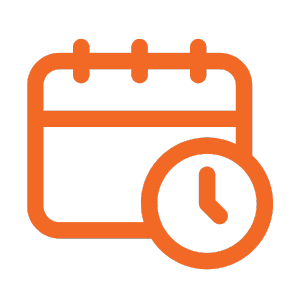
On-Demand Access
Getting help from your dedicated Dissertation Coach is simple. Book a live coaching session , chat via email or send your written work to us for an in-depth review. We're here when you need us.

Trusted Track Record
Over 10 million students have enjoyed our online lessons, while 5000+ students have benefited from 1:1 Private Coaching. The plethora of glowing reviews reflects our commitment.
Chat With A Friendly Coach

Have a question ?
Below we’ve listed some of the most popular topic-related questions we receive, but you’re also welcome to get in touch if you have any other questions.
Topic Ideation Support
Can you give me a research topic.
Unfortunately, not.
You, as the researcher, need to explore the options and choose your own research topic. Thankfully, our Topic Kickstarter service makes this much easier , as we provide you with a clear summary of potential research opportunities and directions which can form the foundation of your topic.
How does the Topic Kickstarter service work?
With the Topic Kickstarter service, you tell us which research area you’re interested in (this can be fairly broad). We then review the current literature and get back to you with a clear set of potential research opportunities, based on literature-backed, current research gaps. You can learn more about the Topic Kickstarter here.
How long does the Topic Kickstarter service take?
It depends on our workload at the time, but we can typically complete a Topic Kickstarter project within a few days. If you’re interested, please contact us to discuss your project.
Are the suggested research opportunities unique and original?
Yes. When undertaking a Topic Kickstarter , we focus on the most recent literature to identify current research gaps/opportunities/problems that can form the foundation of your research topic.
Can I see a sample of a Topic Kickstarter report?
Absolutely. You can access the sample here.
Can you help me find relevant literature about my research topic?
Yes. If you utilise our Topic Kickstarter service, this will by default include various resources that you can use as a theoretical base.
Alternatively, if you have already defined a topic, you can consider using our Literature Kickstarter service to help build a solid base of credible literature.
Can you help me with my research proposal?
Yes, we can help you develop a convincing research proposal. One of our friendly coaches will help you plan and structure your proposal, and provide you with feedback as you write each section.
Can you help me with other aspects of my research project?
Yes. Topic ideation/refinement support is only one aspect of our offering at Grad Coach, and we typically assist students throughout their entire dissertation/thesis/research project. You can learn more about our full service offering here .
Can I get a coach that specialises in my topic area?
It’s important to clarify that our expertise lies in the research process itself , rather than specific research areas/topics (e.g., psychology, management, etc.). In other words, the support we provide is topic-agnostic, which allows us to support students across a very broad range of research topics.
That said, if there is a coach on our team who has experience in your area of research, as well as your chosen methodology, we can allocate them to your project (dependent on their availability, of course).
If you’re unsure about whether we’re the right fit, feel free to drop us an email or book a free initial consultation.
Can you help me find funding for my research project?
Unfortunately, this is not something we can assist with . Our focus is on the research process itself, not the funding thereof.
What qualifications do your coaches have?
All of our coaches hold a doctoral-level degree (for example, a PhD, DBA, etc.). Moreover, they all have experience working within academia, in many cases as dissertation/thesis supervisors. In other words, they understand what markers are looking for when reviewing a student’s work.
Will my research topic be kept confidential?
Yes, all interaction is treated as strictly confidential.
I still have questions…
No problem. Feel free to email us or book an initial consultation to discuss.
What Our Clients Say...
We've worked 1:1 with 5000+ students . Here's what some of them have to say:
David's depth of knowledge in research methodology was truly impressive. He demonstrated a profound understanding of the nuances and complexities of my research area, offering insights that I hadn't even considered. His ability to synthesize information, identify key research gaps, and suggest research topics was truly inspiring. I felt like I had a true expert by my side, guiding me through the complexities of the proposal.
Cyntia Sacani (US)
I had been struggling with the first 3 chapters of my dissertation for over a year. I finally decided to give GradCoach a try and it made a huge difference. Alexandra provided helpful suggestions along with edits that transformed my paper. My advisor was very impressed.
Tracy Shelton (US)
Working with Kerryn has been brilliant. She has guided me through that pesky academic language that makes us all scratch our heads. I can't recommend Grad Coach highly enough; they are very professional, humble, and fun to work with. If like me, you know your subject matter but you're getting lost in the academic language, look no further, give them a go.
Tony Fogarty (UK)
So helpful! Amy assisted me with an outline for my literature review and with organizing the results for my MBA applied research project. Having a road map helped enormously and saved a lot of time. Definitely worth it.
Jennifer Hagedorn (Canada)
Everything about my experience was great, from Dr. Shaeffer’s expertise, to her patience and flexibility. I reached out to GradCoach after receiving a 78 on a midterm paper. Not only did I get a 100 on my final paper in the same class, but I haven’t received a mark less than A+ since. I recommend GradCoach for everyone who needs help with academic research.
Antonia Singleton (Qatar)
I started using Grad Coach for my dissertation and I can honestly say that if it wasn’t for them, I would have really struggled. I would strongly recommend them – worth every penny!
Richard Egenreider (South Africa)
Fast-track your project, today.
Drop us a message or book a no-obligation consultation .

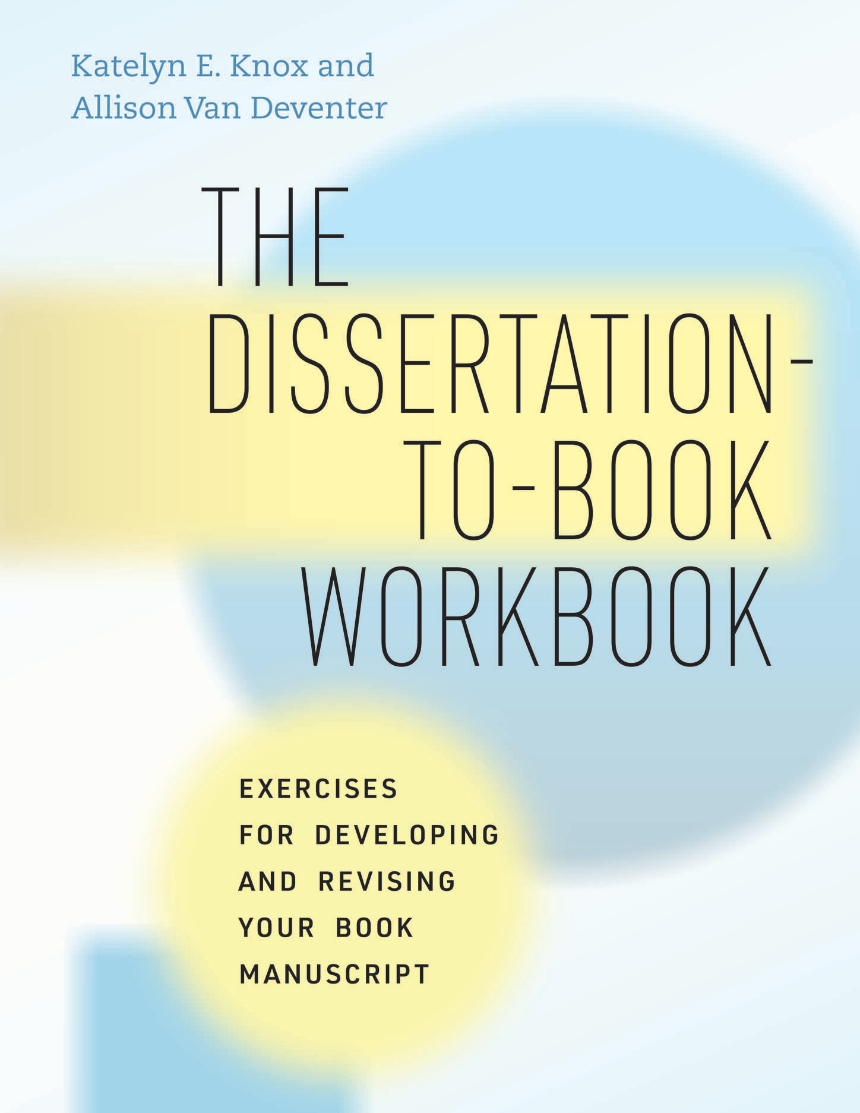
The Dissertation-to-Book Workbook
Exercises for developing and revising your book manuscript.
Katelyn E. Knox and Allison Van Deventer
240 pages | 1 halftone, 176 tables | 8 1/2 x 11 | © 2023
Chicago Guides to Writing, Editing, and Publishing
Reference and Bibliography
- Table of contents
- Author Events
Related Titles
“ The Dissertation-to-Book Workbook not only succeeds but excels in guiding scholars through this process of revision. This pragmatic workbook walks an author through clear steps to identify the organizing principle of the book, write and revise the book’s central claims, and then ensure that the chapters actually function well together before the author sends the book to a press. Since scholars often only have one opportunity to convince a press to publish their book, working through this process before sending to editors is crucial—and this is an essential guide.”
Rebecca K. Marchiel, University of Mississippi
“Based on their years of helping academics revise their dissertations into books, Knox and Van Deventer have distilled their incredible depth of knowledge into a beautifully thought-out book that takes you step by step through the process of revising your dissertation. Too many writing books give vague advice without any practical guidance. This is not that book. From advice on crafting your book’s arc and organizing principle to drafting your book questions and producing chapter answers, this book takes all the guessing out of one of the most stressful tasks academics face. This is the best book I have seen on the topic.”
Wendy Belcher, author of Writing Your Journal Article in Twelve Weeks
Table of Contents
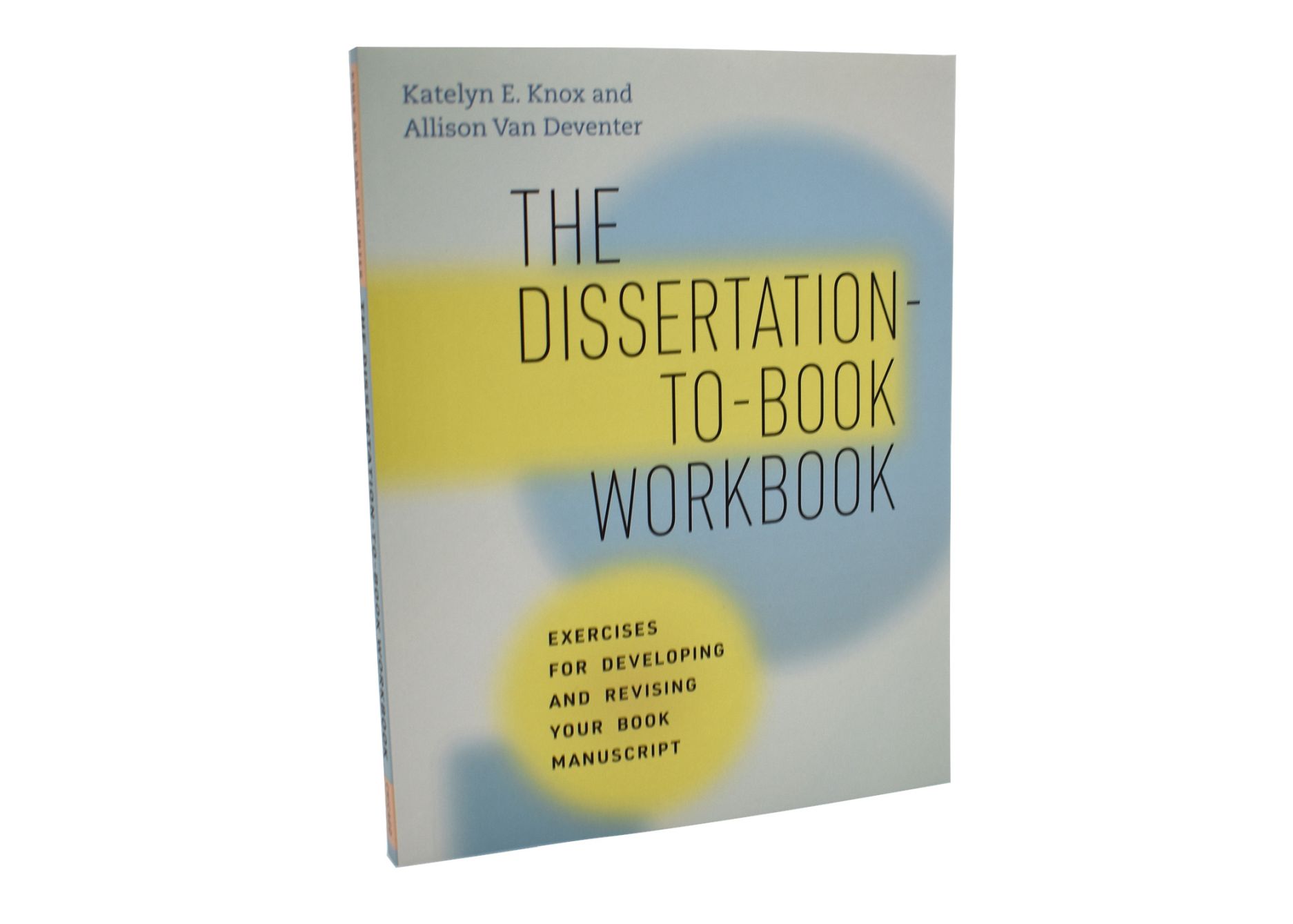
On Revision
William Germano
Behind the Book
Chris Mackenzie Jones
The Business of Being a Writer
Jane Friedman
Getting It Published, Third Edition
Be the first to know.
Get the latest updates on new releases, special offers, and media highlights when you subscribe to our email lists!
Sign up here for updates about the Press
About Us arrow_drop_down expand_more
- News Releases
Our Values arrow_drop_down expand_more
- Diversity & Inclusion
- Accessibility
- Slavery Act Statement
Product Families arrow_drop_down expand_more

Content Solutions expand_more
- Books and Ebooks
- Dissertations
- News & Newspapers
- Primary Sources
- Streaming Video
Products by Subject expand_more
- Health & Medicine
- History & Social Change
- Interdisciplinary
- Science & Technology
- Social Sciences
Popular Products expand_more
Proquest one academic.
- ProQuest One Business
- ProQuest One Education
- ProQuest One Psychology
- ProQuest Black Studies
- Ebooks Offers for Libraries
Library Management expand_more
Discovery services expand_more, resource sharing expand_more, course resource lists expand_more, research management expand_more, mobile solutions expand_more.
- Innovative Mobile
Libraries We Serve expand_more
- Academic Solutions for universities, colleges, and community colleges of all sizes.
- Public Solutions for librarians supporting patrons of public libraries.
- K-12 Solutions for elementary schools, primary schools and high schools.
- Community College Solutions for community colleges, trade schools and two year programs.
- Government Solutions for governmental affairs offices, patent examiners, and grants administrators.
- Corporate Solutions for professionals in the pharmaceutical, legal industries and more.
Solutions For expand_more
- DEI E-Resources
- Print to Electronic
- Reclaiming Your Space
- Library Management
- Library Management – Public Libraries
- Community Engagement
- Content Discovery
- Research Repository
- Digital Preservation
- Resource Sharing
- Document Delivery
- Course Resources
Account Support expand_more
- Setup and Support
- Access Questions
- Renewing a Product
- Paying an Invoice
- Get Usage Data: ProQuest
- Get Usage Data: Alexander Street
- Submitting Dissertations
Idea Exchange
- ProQuest Status Page
Tools & Resources expand_more
- Find a Title List
- Accessibility Documentation
- Open Access
Browse Collections by Subject expand_more
I want to expand_more.
- Start my Research
- Start Text & Data Mining
- Find Research Funding
- Keep up with Research News
- Showcase Research
- See Upcoming Webinars
- Contact Support
I’m Interested In expand_more
- Submitting a Dissertation
- Purchasing a Dissertation
- Assembling Course Materials
- Implementing a Mobile Campus App
Insights expand_more
How text and data mining enables digital literacy in the classroom.
Read about the University of Sydney’s journey to integrate text and data mining (TDM) into its undergraduate courses and incorporate it across disciplines
Meeting Your Needs expand_more
- Graduate Students
- Graduate Administrators
Products & Services expand_more
- ETD Dissemination
- Dissertation & Theses Global
- ETD Dashboard
Resources expand_more
- eLearning Modules
- Expert Advice Articles
Dissertations News expand_more
- Top 25 Most-Accessed Dissertations
- Dissertations Award Winners
Are you a researcher looking for scholarly content? Try searching our platform here...
Language preference
Do you want set this as your default language ?
Connect with ProQuest
Dissertations & theses, proquest: the world leader in dissertation access and dissemination.
Over the last 80 years, ProQuest has built the world’s most comprehensive and renowned dissertations program. ProQuest Dissertations & Theses Global (PQDT Global), continues to grow its repository of 5 million graduate works each year, thanks to the continued contribution from the world’s universities, creating an ever-growing resource of emerging research to fuel innovation and new insights.
PQDT Global provides researchers with quality and equitable search results across all institutions, as well as rich citation data that delivers insights into the connections building around the world.

Amplify your Research
Include research with ProQuest to amplify its reach to a vast community of scholars. Submitting is free!

Accelerate your discovery
Subscribe to ProQuest Dissertations & Theses Global to accelerate and focus your discovery journey, resulting in more efficient and effective research.

Analyze your Influence
Analyze the influence and impact of your dissertations and theses globally by monitoring retrieval data from the ProQuest Platform.
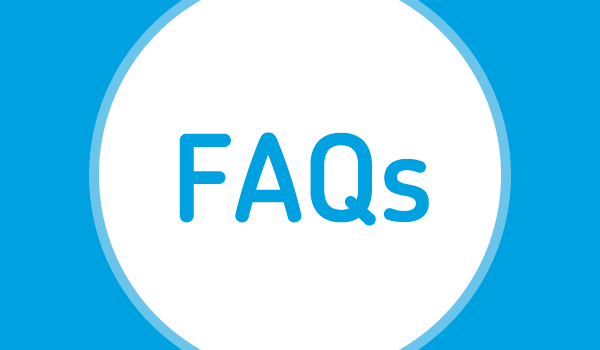
Have questions? We've gathered these frequently asked questions about ProQuest Dissertations & Theses.
Free online learning support to inspire and guide

ProQuest has developed on-demand instructional resources for students to use in a virtual learning environment. eLearning Companions are available to support the graduate student during their research and writing process as well as the undergraduate student who is developing their information literacy skills.
Access the Learning Modules
Spotlight on Research

Distinguished Dissertation and Thesis Award Winners
ProQuest sponsors our Graduate students and their ambitions. Click to see detailed author profiles and previous winners

Top 25 Dissertations
See what titles and topics are trending around the globe. Each month ProQuest posts the top 25 Most-Accessed Dissertations and Theses across all subjects, based upon total PDF downloads.

Have an idea for ProQuest? Share, vote and get feedback on ideas in our forums.
Subject Indexing Partners Enhancing Discoverability

Related Products

ProQuest Dissertation & Theses Global
ProQuest Dissertation & Theses Global is the world's most comprehensive curated collection of multi-disciplinary dissertations and theses from around the world.

Empower researchers to uncover new connections and make new discoveries using TDM Studio, a new solution for text and data mining (TDM). From the initial idea to the final output, TDM Studio puts the power of text and data mining directly in the researcher’s hands.

ProQuest One Academic brings together four core multi-disciplinary products, allowing access to the world’s largest curated collection of journals, ebooks, dissertations, news and video.
Purdue Online Writing Lab Purdue OWL® College of Liberal Arts
From Dissertation to Book

Welcome to the Purdue OWL
This page is brought to you by the OWL at Purdue University. When printing this page, you must include the entire legal notice.
Copyright ©1995-2018 by The Writing Lab & The OWL at Purdue and Purdue University. All rights reserved. This material may not be published, reproduced, broadcast, rewritten, or redistributed without permission. Use of this site constitutes acceptance of our terms and conditions of fair use.
After many years of hard work, a dissertation is a monumental accomplishment. With so much time and effort coupled with the desire to add to scholarly discourse, many people hope to transform their dissertations into a book. Graduate writing has equipped scholars with extensive information about their discipline-specific genres, but the genre of book - and certainly a book hoping to appeal to audience outside of their field - requires new ways of writing. This page provides information and considerations aiding one’s efforts in a “publish or perish” world
Before you Begin
Many people feel the pressure of publication, especially of a book valued by scholars in your field, as they add that “Dr.” to their email signature. The truth is, book publication is still considered the standard even though many entities like the Modern Language Association (MLA) suggest moving away from a book as being the standard for tenure, instead giving articles and chapters more weight. Despite this pressure, it is highly recommended that you take some time (ideally at least a year) away from your dissertation. After dedicating so much time to such a specific topic over the past years, it can be difficult to look at your dissertation with the fresh eyes necessary to reshape it into a book without taking time away.
Once you have taken this break and are able to greet your research anew, critically think about whether this should be a book. Trying to be objective, ask yourself if you really need a book-number of pages to convey your argument or if it would perhaps be better suited for an article or series of articles. Consider that the dissertation may actually have potential for both articles and a book. Another consideration for this choice is timeliness - articles come out much quicker whereas books can take a few years until they hit the shelves. If you think something might be old news in a few years, an article is the way to go.
You may also consider researching subsidies. As a new author, you are a risk to your editor. Coming with funding to offset printing costs will make you less of a risk and ideally have your editor look at your proposal a little more deeply.
Finally, and perhaps most importantly, remember to resource yourself. With workshops, grants, editors, senior scholars, and presses, you are not alone on this journey. While you may consider avoiding your committee so that your feedback is coming from fresh eyes, colleagues often have words of wisdom regarding the book-publishing process. Throughout the process, you’ll also get feedback from your editor and anonymous peer reviews. While it’s easy to get defensive, it’s important to acknowledge and value their opinions and explain your reasoning if you decide not to incorporate a suggestion. You and your editor are on a team, so you both may make compromises throughout the process. Remember - they are on your so team, so go in with a growth mindset and you’re next academic accomplishment will be more in reach.
During the Process
Once you’ve decided that you are, in fact, going to make a book out of your dissertation, it’s time to prepare for the practicalities of this process. First, you need to figure out how you are going to make it possible for you to accomplish such a feat. Writing a book takes intense discipline, so it’s important to create clear goals and plans by considering all the steps it will take you to get to that finish line. Simple actions like scheduling protected writing time can make a huge difference in success. Perhaps you set a goal of writing one page every day. Remember that writing constructs knowledge and the act will get you closer to your final product, even if it isn’t writing that actually ends up in your book,
The process of transforming your dissertation into a book is centered around audience, so you’ll want to keep that audience at the forefront of your mind throughout the writing process. Consider very carefully who your ideal reader(s) are. There may be multiple, and that’s great. Is it scholars in your field? An “intelligent layperson” (Luey, 2004) outside of your field? Whatever group of ideal readers you end up with, review your writing from each individual perspective. People often dream of a broad audience of people outside of academia without actually seeking feedback from anyone outside of the academy. If you’re telling your editor that you believe this will appeal to a history buff outside of the academy, get feedback from someone in that group and have them note places where your writing is not clear. This generalist perspective will help you see what items like jargon are confusing or what information feels boring, increasing the chances of success for this book.
When considering your new audience, remember that you no long need to share everything you know about your topic in this document. While you did have to prove yourself to your committee, this audience automatically assumes you are an expert, so sections that were proving you’re reliable can be ditched or significantly parsed down. This means your literature review will be significantly cut, if not deleted altogether. This is also true of methodologies unless your methodology is exceptionally groundbreaking and interesting.
Your old audience had to listen to you - it’s part of their job description. This new audience will need to be actively reached. Even if your main goal is people in your field, to make a book broad enough to sell - which your editor is going to look for - you’ll need to write for a wider audience which may require you to let go of any anxiety about being “taken seriously in your field.”
A book will require broadening the appeal of your topic. This can be accomplished in a variety of ways such as:
- Humanizing your subject - this may take additional research (such as interviewing the people who make up your statistics) or be as simple as adding personal elements about your topic (such as adding personal life information that was outside of the scope of your dissertation focused on a person’s political career).
- Adding narrative elements - plot, characters, setting, your own voice, and a beginning, middle, and end that pushes the reader forward are all key to marketability.
- Finding a new angle - an angle that directly impacts your reader such as financial or navigation of a life event is going to reach a larger audience.
- Expanding the topic culturally and temporally - take a broad topic related to your subject and see the impacts and/or comparisons of contexts such as religions, race, communities, geographical region, politics, time period, etc. perhaps referencing other studies in your field.
- Justifying your topic’s value - you may hope to create a guide showing your topic’s influence in hopes of affecting mindsets, policy, and funding of stakeholders and those in power.
While your presses’ and editors’ feedback trumps all, there are some general considerations all editors are looking for. As you walk the line between theory and narrative, you’ll want to consider items such as:
- Transitions - does the book flow in a way that keeps the reader interested?
- Chapter length - are the chapters similar in length? If not, what can be combined or split up?
- Repetition - do you find places where facts, stories, or claims are being repeated? Where do those best fit?
- Hyperquotation - do you have too many or too long of quotes? How can you reframe that information with a focus on your work?
- Bibliography/End Notes - is this information necessary? Does your editor/press have limitations on these sections?
- Hagiography - are you ever writing about a subject without criticism? How can you make sure your argument is balanced?
- Tables and Graphs - Does the chart fit without having to turn the book sideways? Does it repeat what’s in the prose making it not worth the cost? Can charts be combined?
Now That You Have a Book
While some people may not have a completed book when they submit a proposal, many have at least a large chunk written and certainly a general outline and thesis. If you do have a whole book complete, you may consider the following advice in the “before you begin” part of the process.
With the reality of budget cuts, editors are accepting fewer and fewer book proposals, making it more imperative than ever that your proposal sticks out. If you are an emerging scholar in your field, you probably won’t have the benefit of being actively sought out by publishers. This means you’ll need to do your research to find the right press and editor for you. Editors tend to have niche areas of topics they like to publish. Check out who published resources you used or check out the list of latest book releases in your field to see who is publishing work in your subject area. These are the publishers that you should propose to.
First, make sure that you follow proposal formatting and content requirements. If you don’t, an editor may disregard your proposal due to the inability to fit within their genre guidelines. Furthermore, if you write more than they ask for, they may assume you cannot write in a concise and clear way and choose to put it in the “no” pile. Beyond this, to make your proposal attention-grabbing, you’ll want to draw them in with a title, table of contents, and abstract or first chapter that are clear, concise, and interesting to someone who may not share your natural enthusiasm for your topic. Typically, the more concisely you can get your points across, the more faith they’ll have in you as a writer.
This also ties in with something academics may feel uncomfortable facing - this book needs to make money. Editors often look to see if their writers are able to get their point across concisely because fewer pages means less printing cost. Similarly, having low numbers of pictures, graphs, and charts, which cost more to print, can make your book feel less risky to an editor. Being upfront about what costs you anticipate and which you can avoid will help your editor calculate if this book is worth taking the risk of taking on a new voice to the field.
Final Thoughts
The transformation from dissertation to book can be very exciting. Oftentimes, creating a broader appeal brings out engaging, compelling writing that will be more readily available to the masses. With this book, you have something to say instead of something to prove. Enjoy your new status as an expert as you get to share your unique findings with the world, moving your discipline forward. There will most likely be obstacles and frustrations along the way, but remember that you have already completed the monumental task of writing a dissertation and you are also capable of this. Best of luck on this journey!
LUEY, B. (Ed.). (2008). Revising Your Dissertation: Advice from Leading Editors (2nd ed.). University of California Press. http://www.jstor.org/stable/10.1525/j.ctt13x1g8x

IMAGES
VIDEO
COMMENTS
Craft a convincing dissertation or thesis research proposal. Write a clear, compelling introduction chapter. Undertake a thorough review of the existing research and write up a literature review. Undertake your own research. Present and interpret your findings. Draw a conclusion and discuss the implications.
In all, if you want a book that will propel you in completing your dissertation, get this book. It will help you (as long as you read and follow it)! :) Read more. 36 people found this helpful. Helpful. Report. C. Wilson. 5.0 out of 5 stars Excellent resource. Reviewed in the United States on August 13, 2011.
Throughout this excellent book, Bolker acts as a therapist, cheerleader, and drill sergeant, all rolled into one. While some of the book's advice is of interest only to dissertation writers, much of the information--on battling writer's block, for instance--is valuable to anybody engaged in writing.
The book shares an effective daily habit, tips on making consistent writing inevitable, managing incomplete research, leveraging advisor meetings, and seeking active help from friends. A game-changer for those struggling with time constraints in their doctoral journey. 5. The Dissertation Warrior, by Guy E. White.
An extremely helpful book for any dissertation project! There's so much to learn from this book! Lots of practical advice on all stages of a dissertation project - no matter whether you are trying to find the right topic, prepare a thesis proposal, write a literature review, or conduct your empirical research.
9- Dissertations And Theses from Start to Finish: Psychology And Related Fields 2nd Edition, by John D. Cone (Author), Sharon L. Foster (Author) This essential guide supports students through the practical, logistical, and emotional stages of writing dissertations and theses. It offers clear guidance on defining topics, scheduling project time ...
The classic step-by-step guide to thesis and dissertation success, fully updated for 2018. From selecting your topic to defending your finished work, a masters thesis or doctoral dissertation is a major undertaking. Since 1998, this book has been the go-to resource for scholars seeking guidance and best practices at every phase of the process.
A Practical Guide to Dissertation and Thesis Writing. By Mark Stephan Felix and Ian Smith. This book first published 2019. Cambridge Scholars Publishing. Lady Stephenson Library, Newcastle upon Tyne, NE6 2PA, UK. British Library Cataloguing in Publication Data. A catalogue record for this book is available from the British Library.
Results-Based Private Coaching. Private Coaching is rocket fuel for your research project, allowing you to (ethically) fast-track every step of the process and work smarter. Our industry-leading guarantees completely eliminate uncertainty and ensure that we're 100% invested in your success, every step of the way.
The experienced authors have run an enormous number of web and face-to-face workshops to support students in life and health sciences and help them write their dissertations. It became clear that research theses are a considerable source of anxiety and that many essential questions need answering - this book is your solution.
In this section, UBC Research Commons staff have compiled a number of books available through UBC Library that might help you in your dissertation writing. In addition to the general books on this page, there are also pages with books related to writing in the Humanities and the Arts, the Social and Behavioural Sciences, the Sciences, and ...
A dissertation is a long-form piece of academic writing based on original research conducted by you. It is usually submitted as the final step in order to finish a PhD program. Your dissertation is probably the longest piece of writing you've ever completed. It requires solid research, writing, and analysis skills, and it can be intimidating ...
Writing a dissertation can feel overwhelming. Most graduate students have written seminar papers or a master's thesis. But a dissertation is essentially like writing a book. Looking at examples of dissertations can help you set realistic expectations and understand what your discipline wants in a successful dissertation.
The structure of a dissertation depends on your field, but it is usually divided into at least four or five chapters (including an introduction and conclusion chapter). The most common dissertation structure in the sciences and social sciences includes: An introduction to your topic. A literature review that surveys relevant sources.
Research Handbooks & Guides. Graduate students embarking on in-depth research and writing can benefit from the following classic guides and handbooks, which mark milestones along the academic journey of lifelong scholars in the making. This book focuses on purposes for doctoral dissertation writing, topic choice and development, choosing and ...
Whether we're proofreading and editing, checking for plagiarism or AI content, generating citations, or writing useful Knowledge Base articles, our aim is to support students on their journey to become better academic writers. We believe that every student should have the right tools for academic success.
Dr. Roberts and Dr. Hyatt's work ensures the student will have a rigorous,yet rewarding dissertation experience. The book contains sound academic research advice in an easy to understand and follow format. The book is thorough and its benefits extend beyond the dissertation to any subsequent scholarship that the reader undertakes."
Thesis and Dissertation: Getting Started. The resources in this section are designed to provide guidance for the first steps of the thesis or dissertation writing process. They offer tools to support the planning and managing of your project, including writing out your weekly schedule, outlining your goals, and organzing the various working ...
A dissertation prospectus or proposal describes what or who you plan to research for your dissertation. It delves into why, when, where, and how you will do your research, as well as helps you choose a type of research to pursue. You should also determine whether you plan to pursue qualitative or quantitative methods and what your research design will look like.
Webster, William G. Developing & Writing Your Thesis, Dissertation or Project: A Book of Sound Advice about Conceptualizing, Organizing, Developing and Finalizing Your Terminal Graduate Research. San Ramon, CA: Academic Scholarwrite, 1998. Zerubavel, Eviatar. The Clockwork Muse. A Practical Guide to Writing Theses, Dissertations, and Books.
Get hands-on help with your research proposal, today. Chat with a friendly coach. See How It Works. 5000+ ... Getting help from your dedicated Dissertation Coach is simple. Book a live video/voice call, chat via email or send your document to us for an in-depth review and critique.
"The Dissertation-to-Book Workbook not only succeeds but excels in guiding scholars through this process of revision. This pragmatic workbook walks an author through clear steps to identify the organizing principle of the book, write and revise the book's central claims, and then ensure that the chapters actually function well together before the author sends the book to a press.
Over the last 80 years, ProQuest has built the world's most comprehensive and renowned dissertations program. ProQuest Dissertations & Theses Global (PQDT Global), continues to grow its repository of 5 million graduate works each year, thanks to the continued contribution from the world's universities, creating an ever-growing resource of emerging research to fuel innovation and new insights.
From Dissertation to Book. After many years of hard work, a dissertation is a monumental accomplishment. With so much time and effort coupled with the desire to add to scholarly discourse, many people hope to transform their dissertations into a book. Graduate writing has equipped scholars with extensive information about their discipline ...